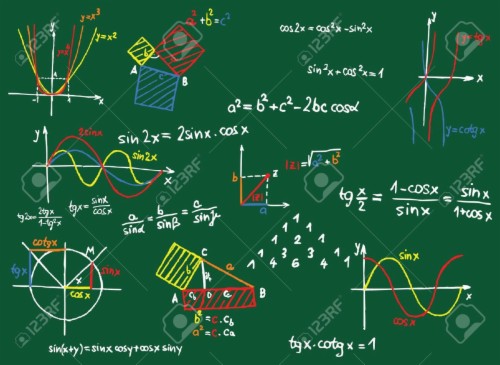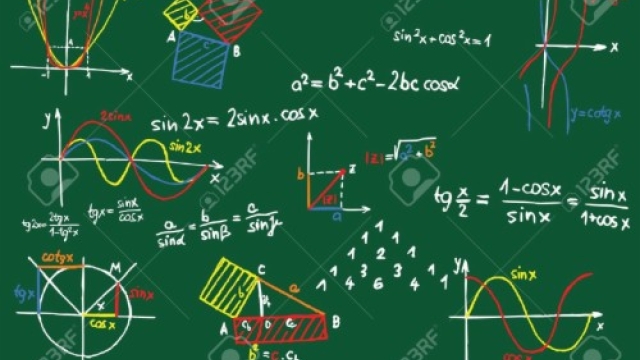Mathematics, a field that has fascinated and perplexed humans for centuries, holds within it a world of secrets waiting to be unraveled. From the simplest calculations to the most complex equations, mathematics is the language of the universe, the tool that allows us to understand and explore the natural laws that govern our world. At its core, mathematics is the study of patterns and structures, the art of manipulating numbers to uncover hidden truths and unlock new possibilities.
Numbers, the building blocks of mathematics, are an embodiment of precision and infinite possibilities. They possess a unique beauty that transcends cultural boundaries and speaks a universal language. Through mathematics, we gain the ability to quantify, measure, and make sense of the world around us. It reveals the underlying order in chaos, offering insights into the symmetries and relationships that govern everything from the tiniest particles to the grandest celestial bodies.
But the true power of mathematics lies not only in its ability to describe and explain the physical world but also in its ability to shape our thinking and problem-solving skills. Mathematics teaches us to think logically, to approach problems analytically, and to cultivate a mindset of curiosity and perseverance. It enables us to make informed decisions, to navigate uncertainties, and to find elegant solutions in a world that often appears chaotic.
So let us embark on a journey of exploration, as we delve into the wonders of mathematics. Join us as we uncover the hidden depths of numbers, as we navigate the intricate web of equations and formulas, and as we discover the profound beauty and power that lie within this ancient and ever-evolving discipline. Mathematics awaits, ready to reveal its secrets to those who dare to explore.
The Language of the Universe
Mathematics, often hailed as the universal language, holds the key to unlocking the secrets of the universe. It is a powerful tool that allows us to understand and describe the world around us with precision and elegance. From the simple counting of objects to the complex equations that govern celestial movements, mathematics serves as a bridge between the tangible and the abstract, unifying different fields of study under its vast umbrella.
Numbers, the building blocks of mathematics, reveal patterns and relationships that exist in nature and beyond. They possess a beauty that transcends cultural and linguistic barriers. Whether we find ourselves marveling at the symmetry of a snowflake or contemplating the intricate Fibonacci sequence found in the spirals of a conch shell, numbers guide us in deciphering the underlying order of our world.
Through mathematics, we are able to navigate the intricacies of the physical universe, from the subatomic realm to the vastness of space. The laws of physics, derived and understood through mathematical equations, provide a glimpse into the inner workings of nature. From calculating the trajectory of a satellite to predicting the behavior of particles, mathematics allows us to make sense of the universe’s grand tapestry.
In the realm of technology, mathematics serves as the backbone of innovation. It enables us to develop algorithms, model complex systems, and create simulations that drive advancements in various fields. From cryptography to artificial intelligence, the power of mathematics empowers us to explore new frontiers and push the boundaries of human knowledge.
Learn How
In conclusion, mathematics is a universal language that transcends cultures and connects us to the fundamental truths of the universe. It is through mathematics that we unravel the mysteries of our world, appreciate its inherent beauty, and harness its immense power for the betterment of society.
Mathematics in Everyday Life
Mathematics is not just an abstract concept that lives in the realm of textbooks and classrooms. It permeates every aspect of our everyday lives, often in ways that we may not even realize. From simple tasks to complex decisions, mathematics plays a key role in guiding our actions and shaping our understanding of the world around us.
At its core, mathematics is about problem-solving. Whether we are calculating the tip at a restaurant, budgeting our expenses, or measuring ingredients for a recipe, we are engaging in mathematical thinking. Numbers help us make sense of quantities, proportions, and relationships, allowing us to navigate the practical challenges of daily life.

Furthermore, mathematics is essential in making informed choices. From comparing prices at the grocery store to evaluating the best mortgage options, mathematical tools like percentages, ratios, and equations enable us to analyze and assess different possibilities. By applying mathematical principles, we can make more confident decisions and optimize outcomes in various real-life situations.
Beyond practical applications, mathematics also enhances our intellectual growth and expands our understanding of the world. It enables us to explore patterns, discover hidden relationships, and uncover the underlying order that governs the universe. From the elegance of geometric shapes to the precision of mathematical models in physics, the beauty of mathematics is evident in its ability to unlock the secrets of the natural world.
In conclusion, mathematics is far more than just a subject taught in school. It is an integral part of our everyday lives, guiding our actions, shaping our decisions, and enriching our understanding of the world. By recognizing the importance and relevance of mathematics in our daily routines, we can unlock its power and appreciate the wonders it brings to our lives.
The Future of Mathematics
In the ever-evolving landscape of human knowledge, mathematics continues to play an integral role in shaping our understanding of the world. The future of this fascinating field is brimming with both excitement and challenges. As technology advances at an unprecedented pace, mathematics is set to become even more crucial in solving complex problems and driving innovation across various domains.
One key aspect of the future of mathematics lies in its application to artificial intelligence and machine learning. As these fields expand, mathematicians will play a vital role in developing algorithms and models that can process vast amounts of data efficiently. By harnessing the power of mathematics, researchers can analyze patterns, make predictions, and optimize machine learning systems for improved performance.
Another frontier in the future of mathematics lies in exploring the mysteries of the universe. From understanding the fundamental laws of physics to unraveling the secrets of black holes, mathematicians are poised to make significant contributions. Through mathematical modeling and simulations, scientists can gain insights into complex phenomena that may otherwise be impossible to observe directly.
Additionally, the future of mathematics holds great potential for advancements in cryptography and cybersecurity. As societies become increasingly connected digitally, the need for secure communication and data protection is paramount. Mathematicians are constantly developing advanced encryption algorithms and techniques to safeguard information from cyber threats. Their work will continue to be vital in ensuring the integrity of our digital infrastructure.
In conclusion, the future of mathematics is indeed promising. By embracing the power of mathematics, we can unlock new possibilities and push the boundaries of human knowledge. From artificial intelligence to cosmology, mathematics will serve as a guiding light, illuminating the pathways to progress and discovery.


